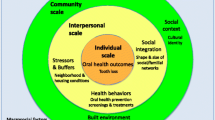Abstract
To identify and describe strategies used to recruit persons of ethnically and culturally diverse backgrounds and to examine their reported effectiveness. Studies (n = 26) reporting on recruitment of persons of different cultural and ethnic backgrounds, published in English between 1995 and 2012, were included in this systematic review. Data on the type of recruitment strategies and overall reported effectiveness of the strategy in recruiting participants were extracted. The vote counting method was used to synthesize the findings on effectiveness. Both proactive (face-to-face) and reactive recruitment strategies (collaboration with key leaders, snowball and word of mouth, printed material, and broadcast media) and providing compensation, being flexible, building rapport and trust, and employing ethnically and culturally diverse research staff were effective in recruiting participants. A list of strategies that are effective in recruiting persons of diverse ethnic and cultural backgrounds were generated. Researchers can select the evidence-based strategies that are most applicable in the context of their study.
Similar content being viewed by others
References
Butterfield PG, Yates SM, Rogers B, Healow JM. Overcoming subject recruitment challenges: strategies for successful collaboration with novice research agencies. Appl Nurs Res. 2003;16(1):46–52.
Steinke EE. Research ethics, informed consent, and participant recruitment. Clin Nurse Specialist. 2004;18(2):88–95.
Drew ABG, Baron-Cohen S, Cox A, Slonims V, Wheelwright S, Swettenham J, Berry B, Charman T. A pilot randomized control trial of a parent training intervention for pre-school children with autism: preliminary findings and methodological challenges. Eur Child Adolesc Psychiatry. 2002;11:266–72.
Gross D, Fogg L. Clinical trials in the 21st century: the case for participant-centered research. Res Nurs Health. 2001;24:530–9.
Gul RB, Ali PA. Clinical trials: the challenge of recruitment and retention of participants. J Clin Nurs. 2010;19(1–2):227–33.
Torgerson JS, Arlinger K, Kappi M, Sjostrom L. Principles for enhanced recruitment of subjects in a large clinical trial. Control Clin Trials. 2001;22:515–25.
Watson JM, Torgerson DJ. Increasing recruitment to randomised trials: a review of randomised controlled trials. BMC Med Res Methodol. 2006;6:34.
Webb MS, Seigers D, Wood EA. Recruiting African American smokers into intervention research: relationships between recruitment strategies and participant characteristics. Res Nurs Health. 2009;32(1):86–95.
Kaluzny A, Brawley O, Garson-Angert D, Shaw J, Godley P, Warnecke R, Ford L. Assuring access to state- of-the-art care for U.S. minority populations: the first 2 years of the minority-based community clinical oncology program. J Natl Cancer Inst. 1993;85(23):1945–50.
King AC, Harris RB, Haskell WL. Effect of recruitment strategy on types of subjects entered into a primary prevention clinical trial. Ann Epidemiol. 1994;4(4):312–20.
National Institutes of Health (NIH). Women and minority recruiting: intervention testing. NIH Guide 1996;25(1).
Streubert HJ, Carpenter DR. Qualitative research in nursing: advancing the humanistic imperative. 5th ed. Philadelphia: Lippincott Williams & Wilkins; 2007.
Corbie-Smith G, Thomas SB, St. George DM. Distrust, race, and research. Arch Intern Med. 2002;162(21):2458–63.
Earl CE, Penney PJ. The significance of trust in the research consent process with African Americans. West J Nurs Res. 2001;23(7):753–62.
Levine R. Ethics and regulation of clinical research. 2nd ed. Baltimore: Urban & Schwarzenberg; 1986.
Huang HH, Coker AD. Examining issues affecting African American participation in research studies. J Black Stud. 2010;40(4):619–36.
Fouad MN, Patridge E, Green BL, Kobler C, Wynn T, Nagy S, Churchill S. Minority recruitment in clinical trials: a conference at Tuskegee, researchers and the community. Ann Epidemiol. 2000;10(Suppl. 8):S35–40.
LaVeist TA, Nickerson KJ, Bowie JV. Attitudes about racism, medical mistrust, and satisfaction with care among African American and white cardiac patients. Med Care Res Rev. 2000;57(Suppl. 1):146–61.
Moreno-John G, Gachie A, Fleming CM, Napoles-Springer A, Mutran E, Manson SM, Perez-Stable EJ. Ethnic minority older adults participating in clinical research developing trust. J Aging Health. 2004;16(5):93S–123S.
Ballard EL, Nash F, Raiford K, Harrell LE. Recruitment of black elderly for clinical research studies of dementia: the CERAD experience. The Gerontol. 1993;33(4):561–5.
Mohammadi N, Jones T, Evans M. Participant recruitment from minority religious groups: the case of the Islamic population in South Australia. Int Nurs Rev. 2008;55(4):393–8.
Duant DJ. Ethnicity and recruitment rates in clinical research methods. Clin Methods. 2003;16(3):189–95.
Knobf MT, Juarez G, Lee SYK, Sun V, Sun Y, Haozous E. Challenges and strategies in recruitment of ethnically diverse populations for cancer nursing research. Oncol Nurs Forum. 2007;34(6):1187–94.
Cooper H. Synthesizing research: a guide for literature reviews. 3rd ed. Thousand Oaks: Sage; 1998.
Hendrickson SG. Video recruitment of non-English-speaking participants. West J Nurs Res. 2007;29(2):232–42.
Gilliss CL, Lee KA, Gutierrez Y, Taylor D, Beyene Y, Neuhaus J, Murrell N. Recruitment and retention of healthy minority women into community-based longitudinal research. J Women’s Health Gend Based Med. 2001;10(1):77–85.
Horowitz CR, Brenner BL, Lachapelle S, Amara DA, Arniella G. Effective recruitment of minority populations through community-led strategies. Am J Prev Med. 2009;27(6):S195–200.
King DW, Duello TM, Miranda PY, Hodges KP, Shelton AJ, Chukelu P, Jones LA. Strategies for recruitment of healthy premenopausal women into the African American nutrition for life (A NULIFE) study. J Women’s Health. 2010;19(5):855–62.
Jones RA, Steeves R, Williams I. Strategies for recruiting African American men into prostate cancer screening studies. Nurs Res. 2009;58(6):452–6.
Banks-Wallace J, Enyart J, Johnson C. Recruitment and entrance of participants into a physical activity intervention for hypertensive African American women. Adv Nurs Sci. 2004;27(2):102–16.
Ellish NJ, Scott D, Royak-Schaler R, Higginbotham EJ. Community-based strategies for recruiting older, African Americans into a behavioural intervention study. J Natl Med Assoc. 2009;101(11):1104–11.
Taylor-Piliae R, Froelicher ES. Methods to optimize recruitment and retention to an exercise study in Chinese immigrants. Nurs Res. 2007;56(2):132–6.
Williams M, Turkheimer E. The effects of interviewer race on anxiety in African-Americans. In: Sebeki LV, editor. Leading-edge health education issues. New York: Nova Publishers; 2008.
Kahan D, Al-Tamimi A. Strategies for recruiting Middle-Eastern American young adults for physical activity research: a case of snowballs and Salaam. J Immigr Minor Health. 2009;11(5):380–90.
Lee YH, Salman A, Wang F. Recruiting Chinese American adolescents to HIV/AIDS-related research: a lesson learned from a cross-sectional study. Appl Nurs Res. 2010;25(1):40–6.
Larkey LK, Gonzalez JA, Mar LE, Glantz N. Latina recruitment for cancer prevention education via community based participatory research strategies. Contemp Clin Trials. 2009;30:47–54.
Nichols L, Martindale-Adams J, Burns R, Coon D, Ory M, Mahoney D, Tarlow B, Burgio L, Gallagher-Thompson D, Giu D, Arguelles T, Winter L. Social marketing as a framework for recruitment illustrations from the REACH study. J Aging Health. 2004;16(5):157S–76S.
Kennedy BM, Kumanyika S, Ard JD, Reams P, Johnson CA, Karanja N, Charleston JB, Appel LJ, Maurice V, Harsha DW. Overall and minority-focused recruitment strategies in the PREMIER multicenter trial of lifestyle interventions for blood pressure control. Contemp Clin Trials. 2010;31(1):49–54.
Brown DR, Fouad MN, Basen-Engquist K, Tortolero-Luna G. Recruitment and retention of minority women in cancer screening, prevention, and treatment trials. Ann Epidemiol. 2000;10(8):S13–21.
Choi NG, Smith J. Reaching out to racial/ethnic minority older persons for elderly nutrition programs. J Nutr Elder. 2004;24(1):89–104.
Williams M, Powers M, Yun YG, Foa E. Minority participation in randomized controlled trials for obsessive-compulsive disorder. J Anxiety Disord. 2010;4(2):171–7.
Feldman S, Radermacher H, Browning C, Bird S, Thomas S. Challenge of recruitment and retention of older people from culturally diverse communities in research. Ageing Soc. 2008;28(4):473–93.
Hooks PC, Tsong Y, Baranowski T, Henske JC, Nader PR, Levin JS. Recruitment strategies for multiethnic family and community health research. Fam Community Health. 1988;11(1):48–59.
Chasan-Taber L, Fortner R, Hastings V, Markenson G. Strategies for recruiting Hispanic women into a prospective cohort study of modifiable risk factors for gestational diabetes mellitus. BMJ Pregnancy Childbirth. 2009;9(1):57–65.
Jackson JS, Torres M, Caldwell CH, Neighbors HW, Nesse RM, Taylor RJ, Trierweiler SJ, Williams DR. The national survey of American life: a study of racial, ethnic, and cultural influences on mental disorders and mental health. Int J Methods Psychiatr Res. 2004;13:196–207.
Malgady RG, Costantino G. Symptom severity in bilingual Hispanics as a function of clinician ethnicity and language of interview. Psychol Assess. 1998;10:120–7.
Witte SS, El-Bassel N, Gilbert L, Wu E, Chang M, Steinglass P. Recruitment of minority women and their main sexual partner in an HIV/STI prevention trial. J Women’s Health. 2004;13(10):1137–47.
Cabral DN, Napoles-Springer AM, Miike R, McMillan A, Sison JD, Wrensh MR, Perez-Stable EJ, Wiencke J. Population-and-community-based recruitment of African Americans and Latinos: the San Francisco Bay Area lung cancer study. Am J Epidemiol. 2003;158(3):272–79.
Hines-Martin V, Speck BJ, Stetson B, Looney SW. Understanding systems and rhythms for minority recruitment in intervention research. Res Nurs Health. 2009;32(6):657–70.
Moinpour CM, Atkinson JO, Thomas SM, Underwood SM, Harvey C, Parzuchowski J, et al. Minority recruitment in the prostate cancer prevention trial. Ann Epidemiol . 2000;10(8):S85-S91.
Author information
Authors and Affiliations
Corresponding author
Rights and permissions
About this article
Cite this article
Ibrahim, S., Sidani, S. Strategies to Recruit Minority persons: A Systematic Review. J Immigrant Minority Health 16, 882–888 (2014). https://doi.org/10.1007/s10903-013-9783-y
Published:
Issue Date:
DOI: https://doi.org/10.1007/s10903-013-9783-y



